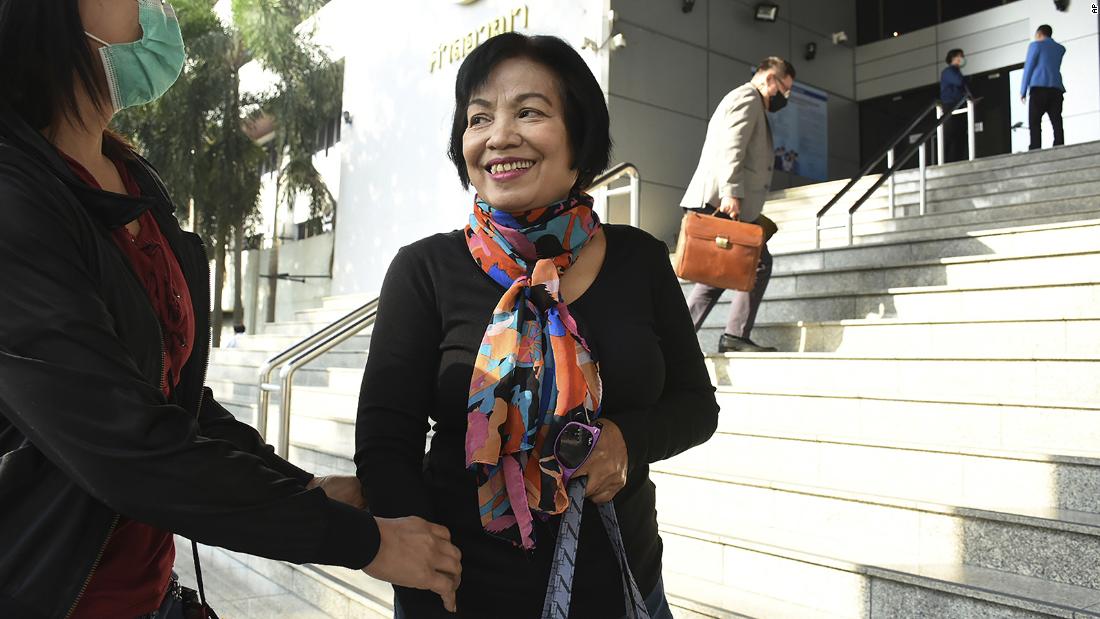Thailand has some of the most stringent laws in the world against defamation or criticism of a king, queen, crown prince, or regent. Laws, known as lese majeste, can lead to a 15-year prison sentence for each violation.
Anshan Priilert, 65, pleaded guilty to sharing audio clips on YouTube and Facebook between 2014 and 2015 that were deemed critical of the kingdom’s royal family, according to Thai Human Rights Advocates. She was convicted of 29 counts, each for three years.
The Bangkok Criminal Court issued an initial sentence of 87 years in prison but cut it in half due to Anshan’s guilt.
“The verdict is the highest judgment a Thai court has ever issued for a breach of Article 112,” said her lawyer, Boweny Chomsri, referring to the Royal Self-Defect Act.
Boweny said they will appeal the ruling and work to secure bail from the appeals court. She said, “There are two other courts where we can look into her legal case.”
Reviving the spirit of the royal self
Many protesters felt emboldened to openly call for reform of the monarchy.
These calls struck a chord and drove thousands of people onto the streets, in sometimes violent confrontations with the police and pro-monarchy groups. The younger generation tore apart the idea of a sacred monarchy and a king protected from public scrutiny. Their demands included accountability from the king under the constitution, restrictions on his powers, and transparency in his financial affairs.
From November 24 to December 31, 2020, at least 38 people have been charged under the pretext of a royal self, including a minor and several college students, according to Thai Human Rights Advocates.
Thetinan Bunsudyrak, a professor of political science and director of the Institute for Security and International Studies at Chulalongkorn University, said that the Anshan ruling “means that the law of defect in the royal self has returned in full force.”
He said, “Because it dates back to the last ruling and coup in 2014, this sentence that set records after a pause is seen as a warning shot of the ongoing protest movement led by the youth against the new king.” “It indicates that the centers of power that exist in Thailand are faltering in the long run.”
Six-year case
The Anshan case is not directly related to recent accusations against pro-democracy protesters. But with the nearly three-year hiatus in the royal self-defect cases ended, analysts say the ruling indicates that the old cases will now be triggered.
Anshan, a former civil servant who worked in the Revenue Administration, was arrested in January 2015, shortly after the military overthrew the civilian government in Thailand in a coup.
Anshan’s case was initially brought before a military court and has been held for nearly four years pending trial, her lawyer said. In 2018, she was released on bail and her case was transferred to a civil criminal court.
Her crime was sharing audio clips on social media from an underground radio program that allegedly criticized the late King Bhumibol Adulyadej. The creator of the clips – a man he called “Banbuj” – was convicted of royal chastity and has already served his sentence.
“This horrific case is yet another serious attack on Thailand’s vanishing space for freedom of expression,” said Yamini Mishra, Asia Pacific Regional Director at Amnesty International. “The way it is sentenced is also scary. The way the authorities have clearly sought to maximize penalties by doubling down on criminal charges sends a clear message of deterrence to Thailand’s 50 million internet users.”

“Guru professionista del caffè. Giocatore tipico. Difensore degli alcolici. Fanatico del bacon. Organizzatore.”







